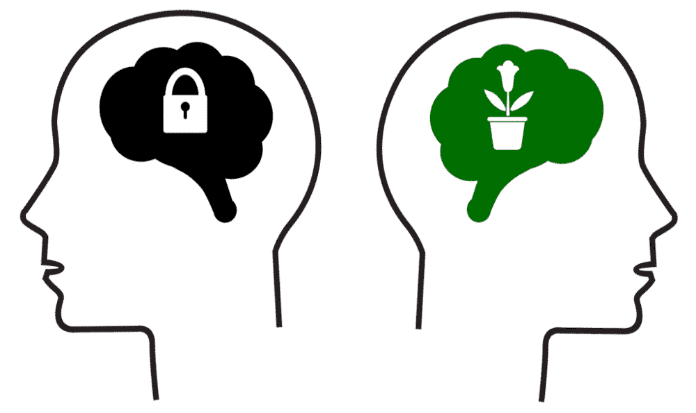Forget You, Mountain!
Amy Wartham //
I took piano lessons as a child and if I’m being honest, I wasn’t really any good. I knew that I would never become a concert pianist, but I did practice and always tried my best. A lot of times my mom would be cooking dinner while I practiced and after hitting, not one or two notes, but a series of missed keys, I would hear her give out a small, “ooof” noise. Don’t get me wrong. My mom was the most patient and positive woman on the planet, but even my practicing would get to her sometimes. But I continued to practice and always tried my best.
Failure and having a positive mindset go hand-in-hand. Did you know that Steven Spielberg was rejected by the University of Southern California three times, after which he dropped out to become a director, or that Colonel Sanders was turned down 1,009 times when he tried selling his fried chicken recipe or that James Dyson created 5,126 prototypes of his vacuum cleaner before succeeding?
It makes me wonder,
- Why do some people see failures differently?
- What keeps them going despite repeated failures?
- How do they motivate themselves?
- At what point do you throw in the proverbial towel?
It’s all about having a positive mindset.
Mindset is a simple idea discovered by world-renowned Stanford University psychologist Carol Dweck based on decades of research on achievement and success.

Mindsets are beliefs – beliefs about yourself and your most basic qualities. Think about your intelligence, your talents, your personality. Are these qualities simply fixed traits, carved in stone and that’s that? Or are they things you can cultivate and develop throughout your life?
Dr. Dweck coined the terms fixed mindset and growth mindset to describe the underlying beliefs people have about learning and intelligence.
People with a fixed mindset believe that their traits are just givens. They have a certain amount of brains and talent and nothing can change that. If they have a lot, they’re all set, but if they don’t… well…. ‘ya know….
So, people with this mindset end up worrying about their traits and how adequate they are. They have something to prove to themselves and others.
Individuals with a growth mindset see their qualities as things that can be developed through their dedication and hard work. Sure, they’re happy if they’re brainy or talented, but that’s just the starting point. They understand that no one has ever accomplished great things without years of passionate practice and learning. (Even one of basketball’s all-time greats and Hall of Famer, Michael Jordan, would practice 5 or 6 hours a day.)

Who remembers reading the book, The Little Engine That Could? To refresh your memory, it was the story about this long train that needed to be pulled over a high mountain after its engine breaks down. Several other larger engines are asked the pull the train (full of toys and the whatnot for the kids in the next town) and one after another, they all come up with excuses as to why they can’t. After all other options are exhausted, they ask this little engine to do it and sure enough, he steps up (in the literal sense), pulls that train over the mountain, all the while repeating the motto, “I think I can, I think I can, I think I can……” Forget you mountain!! All the children in the town get their toys and joyous laughter and frolic ensues.
To determine your mindset, consider the following:
- How do you approach new problems?
- What comes to mind when you see new things?
- What’s your reaction to setbacks and failures?
Our mindset is what can make the difference in how we approach everything that we do with our lives and our jobs AND it directly influences results.
Here are a few suggestions from Content Writer Saga Briggs with InformED on how to develop a growth mindset.
1. Acknowledge and embrace imperfections. Hiding from your weaknesses means you’ll never overcome them.
2. View challenges as opportunities. Having a growth mindset means relishing opportunities for self-improvement.
3. Replace the word “failing” with the word “learning.” When you make a mistake or fall short of a goal, you haven’t failed; you’ve learned.
4. Value the process over the end result. Intelligent people enjoy the learning process, and don’t mind when it continues beyond an expected time frame.
5. Use the word “yet.” Dweck says “not yet” has become one of her favorite phrases. Whenever you’re struggling with a task, just tell yourself that you haven’t mastered it yet.
My suggestion is simply to be that “little engine” because I know you can… I know you can…. I know you can….
If you’d like to find out more about how UNC Charlotte Employer Solutions can help your organization make an impact, reach out to me at awartham@charlotte.edu so we can set up a time to chat.